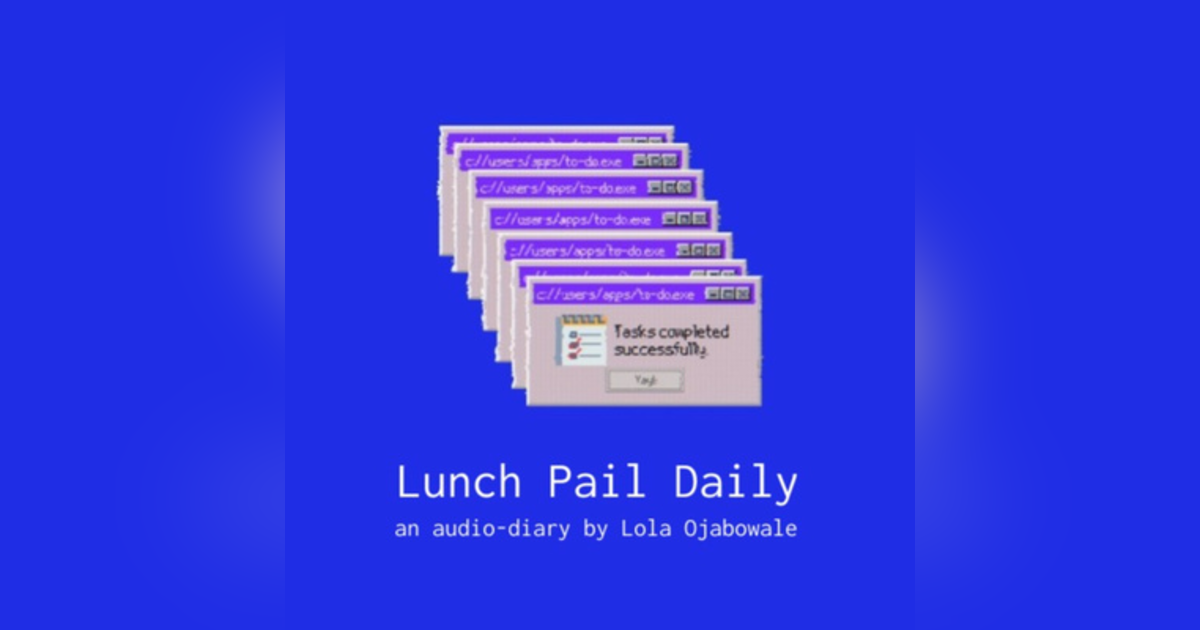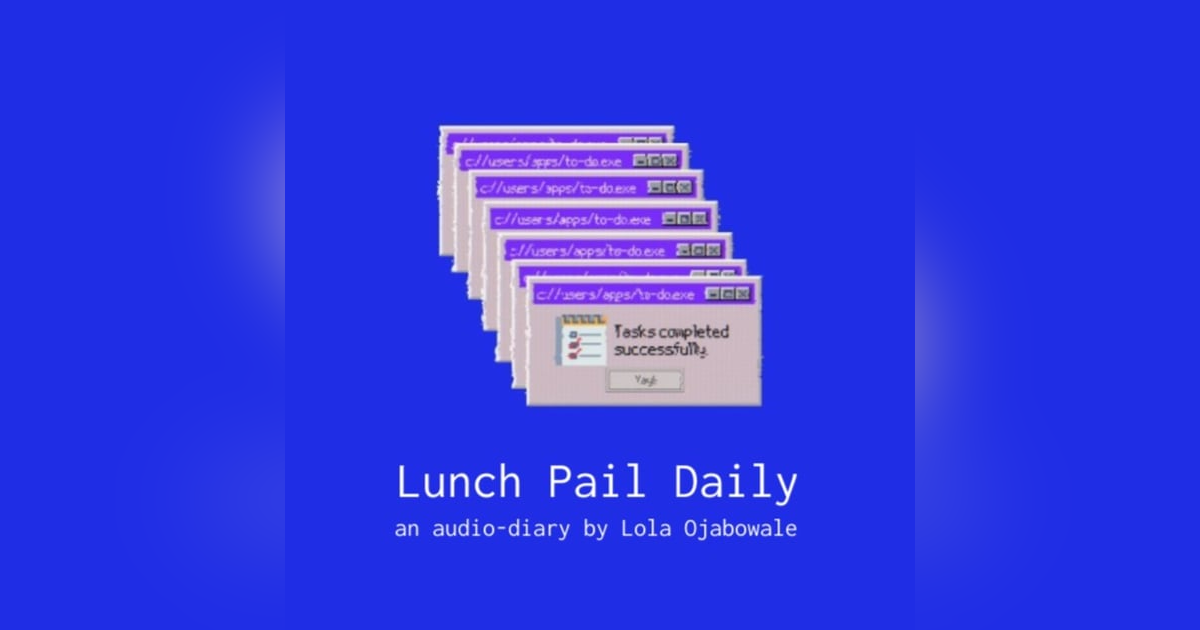#218 — 🥞 New software stacks

Jamming about some new low-code tools on the block and switching to platforms that let you build visually and export the code in this episode.
What's up everybody? This is Lola Ojabowale, founder of lunch pail labs. Welcome back to lunch pail daily, my personal audio diary on building and growing lunch pail labs, a digital product studio based out of Atlanta, Georgia. In today's episode, we're gonna jam about low code, code software stacks, because I've been thinking of really switching mine up at lunch pail labs.
So to preface all of this, I really do think we need more no code tools that will let you build visually and export the code I've mentioned is pseudo similar concept with open source, no code, that being very important for accessibility reasons, because the, a lot of the no code platforms are prohibitively expensive to other regions of the world. And I get, you know, I get why the companies themselves are close source, you can make a ton of money that way, by owning the entire growth cycle, having people have to go through the arduous process of rebuilding through on another platform or through code. And the companies are, you know, making really big splashes that way. Webflow, for example, recently raised their prices, and also just announced today that they raised $120 million at a 4 billion valuation. They're huge, and I think continuing to be the closed source will, where the companies and makers on their platform are reliant on them will serve serve their financials well.
But for the maker,I think we're starting to see a lot more risks start to pop up. I think a lot of the no code tools are sort of abandoning the most low end of the market. So those are people who are maybe just getting in to know code are trying to learn or trying to explore. And it seems a lot of these, I mean, a lot more tools are, I think better serving agencies and freelancers who are selling, you know, the the the note code tool and expertise, that multiples of what it costs them. Or just like plain old enterprise companies, small business companies, where their cost comparison is to what it is to hire an engineer.
And so I've been deep. I've kind of mentioned before, but I've been diving much deeper into code by building widgets for no coders, doing all sorts of React React Native things. And looking more at how low code doesn't only combine code into more low code tools that don't just let me like add code when I need to, to my no-code projects, but can actually let me export and carry the code with me as a next evolution of my stack of life primarily being low code, instead of no code, I found a few tools builder X, drop it, they both generate React Native flutter flow generates flutter, which is a cross platform development framework.
And I'll say like, at the end of the day, I think this is really a lot about limiting risk risk without a platform I invest a lot of time in doesn't exist anymore, I really do think that risk is probably pretty low with like, Bubbles, if your workflows given how much funding that they have. I think there's some risks running into platform limitations. There's a particularly pretty popular no-code tool that seems to be going out of vogue because of all like the bugs and things on the platform that have recently propped up.
And I think there's a another big risk that platforms decide to move way up market with all the funding where it's really only where it's not as useful for the agency or freelancer, but it's, you know, they start to moreso compete with the cost of hiring like an engineer. So, and I think some of these platforms like bubble if they continue to make good on their process, like good on their promise. There are already a lot of no cool tools that are 100 200 $300 A month $300 per app. And I think a lot of the tools like bubble could reasonably be like $500 per month. And I think there are a lot of tools that are really just wanting to focus on You know, the the very serious use cases and less for the exploration learning.
So all of a roundabout way of saying, you know, if I really look at mental models in this case, I really think this switching the stack to more low code or at least exploring that more code base even I've also been looking at like react on rails really has more to do with like redundancy and a margin of safety through exploring these tools. I, one just gain more exposure to like those like general developer workflows, popular component systems, tailwind, things like that, that can bring back to create more opinionated solutions for no coders to leverage and that's, that's really just like the the brain dump the jam for today. So I hope everybody has a wonderful Wednesday and I will catch you all later.






